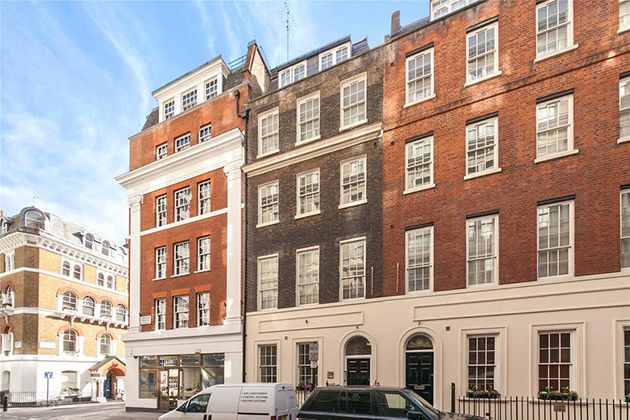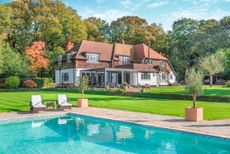Where to buy a house in London
With so much talk of the London market being dead in the water, where are the most sensible places to buy now? We talk to the experts.


If you believe all you read in the (newsprint) press, the London property market is dead in the water, with everyone quick to confirm that the froth has finally blown off what has been an extraordinary run of inflationary price rises.
However, scratch beneath the surface of idle dinner-party chatter and a different picture emerges—one that suggests activity hasn’t evaporated as completely as property punters from here to Singapore (by all accounts) presume. ‘There’s definitely still a market— it’s far from dead,’ argues Roarie Scarisbrick of Property Vision’s London office (020–7808 8998).
‘What is definitely down is volume— in some central areas of town, it’s dropped by 30% or 40%.’ The reason was the ‘passion cooler’ (a term coined by Trevor Abrahamsohn of Glentree Estates in north-west London) of George Osborne’s new Stamp Duty arrangements, which ushered in a new top rate of 12% overnight in December 2014. As a result, over the past 12 months, ‘London—the greatest city on Earth—saw far fewer wealthy foreigners wanting to splash the cash on UK property and transactions were vastly down,’ says Trevor (020– 8209 1149).
He adds that the slowdown in the Chinese economy and sanctions on Russia resulted in an 80% drop in applications for visas from these ‘hitherto resourceful countries’.
Consequently, no one is under any illusion that it will be anything other than a value-driven market next year. According to Guy Meacock of Prime Purchase (020–7881 2392), all eyes will be on interest rates in 2016.
‘Although we don’t have the debt-fuelled madness of a few years ago, we have become used to cheap money and it’ll be hard for borrowers when rates do start creeping upwards.’ Things will also hinge, says Saul Empson of Harringtons UK (07968 254398), on the prices of the new crop of instructions: if they’re reasonable, properties will sell and encourage owners of houses that are sticking to adjust their expectations. If not, there will be a ‘veritable log pile of unsold middle market houses’.
However, he adds: ‘If the few buyers out there are brave next year, I predict we’ll look back on this as a golden time and buyers who missed the market will kick themselves, as they did in the aftermath of 1984, 1991 to 1993, 1998, 2001, 2004 and 2008.’
Sign up for the Country Life Newsletter
Exquisite houses, the beauty of Nature, and how to get the most from your life, straight to your inbox.
The best places to buy property in London
Empty nesters
Those whose children have moved out are often keen to find somewhere more interesting to live: 'whether they’ve lived off the King’s Road or in the country, there’s an appetite to try a new area,’ believes Roarie.
‘For that reason, a boutique development in Covent Garden, with the West End at your feet, might appeal or the new developments around Marylebone High Street.’ Even though some of these apartments were designed to attract the overseas market, there’s a surprising number of British buyers.
‘It’s a practical way of living: you don’t have to cope with the 118 stairs that a traditional terrace house might have.’
Where to buy in Mayfair
In terms of new developments, there’s lots going on in Mayfair for the first time in 15 years: several new developments are coming to completion in 2016. ‘That includes 20, Grosvenor Square, where the developer is looking for a blended average of £5,000 per sq ft,’ explains Guy. ‘It’ll be one of the first fully serviced buildings in the area, with a hotel service and concierge—something Mayfair has lacked.’
He continues: ‘The big selling point will be the Grosvenor Square address, which makes a real international statement—not least, of course, to potential American buyers.’
Where to buy your London pied-à-terre
According to Saul, those looking for a base in the capital should always follow this tenet: ‘Buy the best-quality property you can in a reasonably established area near a Tube station.’ He suggests looking in Fulham for flats and heading to Brook Green and Brackenbury Village for three-bedroom houses for about £1 million.
‘These areas are good if the market gets problematic as you won’t be up against investors.’ Brackenbury also works for those coming into London from anywhere in Buckinghamshire and Oxfordshire right round to the A3/M3. A final piece of Saul advice: ‘Stay north rather than south of the river.’
-
 A well-connected rural playground with 23 acres on the edge of the South Downs National Park
A well-connected rural playground with 23 acres on the edge of the South Downs National ParkOld House Farm is an impressive family home with a wealth of amenities that would inspire any rural passion.
By Arabella Youens Published
-
 The UK gets its first ‘European stork village’ — and it's in West Sussex
The UK gets its first ‘European stork village’ — and it's in West SussexAlthough the mortality rate among white storks can be up to 90%, the future looks rosy for breeding pairs in southern England.
By Rosie Paterson Published

